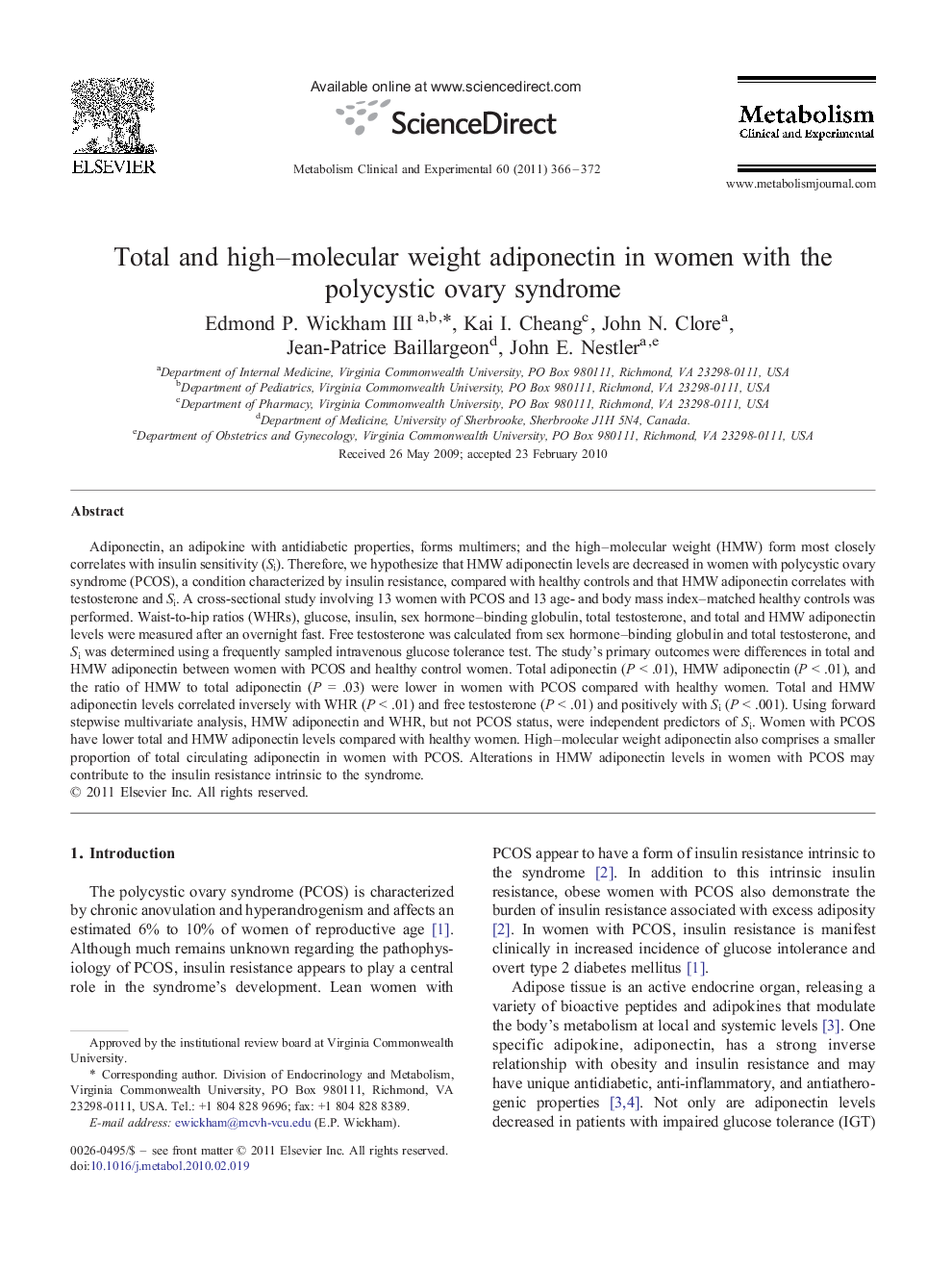| Article ID | Journal | Published Year | Pages | File Type |
|---|---|---|---|---|
| 2806420 | Metabolism | 2011 | 7 Pages |
Adiponectin, an adipokine with antidiabetic properties, forms multimers; and the high–molecular weight (HMW) form most closely correlates with insulin sensitivity (Si). Therefore, we hypothesize that HMW adiponectin levels are decreased in women with polycystic ovary syndrome (PCOS), a condition characterized by insulin resistance, compared with healthy controls and that HMW adiponectin correlates with testosterone and Si. A cross-sectional study involving 13 women with PCOS and 13 age- and body mass index–matched healthy controls was performed. Waist-to-hip ratios (WHRs), glucose, insulin, sex hormone–binding globulin, total testosterone, and total and HMW adiponectin levels were measured after an overnight fast. Free testosterone was calculated from sex hormone–binding globulin and total testosterone, and Si was determined using a frequently sampled intravenous glucose tolerance test. The study's primary outcomes were differences in total and HMW adiponectin between women with PCOS and healthy control women. Total adiponectin (P < .01), HMW adiponectin (P < .01), and the ratio of HMW to total adiponectin (P = .03) were lower in women with PCOS compared with healthy women. Total and HMW adiponectin levels correlated inversely with WHR (P < .01) and free testosterone (P < .01) and positively with Si (P < .001). Using forward stepwise multivariate analysis, HMW adiponectin and WHR, but not PCOS status, were independent predictors of Si. Women with PCOS have lower total and HMW adiponectin levels compared with healthy women. High–molecular weight adiponectin also comprises a smaller proportion of total circulating adiponectin in women with PCOS. Alterations in HMW adiponectin levels in women with PCOS may contribute to the insulin resistance intrinsic to the syndrome.
